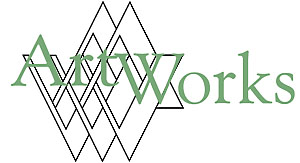
 |
Fall 2002 |
|
Milestones in Morgan WV native wins Tony Award ORBI Arts Network From the director Arts Action! resource kit A steelworker goes to the ball Arts Mongahela workshop Dancing with two left feet Arts conference inspires new ideas Fellowship winner profile
|
Arts Monongahela holds accessibility workshopBy Jenny Bookhamer In early May, Arts Monongahela, a non-profit organization dedicated to advancing the arts and enhancing the community, held an arts accessibility workshop at South Middle School in Morgantown, WV. The workshop included guest speakers as well as a theater performance that demonstrated the usefulness of assistive technology. Concerned community members and representatives from area arts organizations — including dance, theater, literary and visual arts — came to learn ways to make the arts more accessible to everyone. Funding for the workshop and accompanying materials was made possible by the office of Kay Goodwin, West Virginia’s Secretary of Education and the Arts, and the West Virginia State Legislature. Meghan King Johnson, executive director of Arts Monongahela, opened the conference by explaining that accessibility is a significant issue to the arts world in particular, since the arts have always been celebrated for eliminating barriers. She also pointed out that certain standards of arts accessibility are required by law and reviewed the history of the 1990 Americans with Disabilities Act (ADA/504). She noted that making the arts accessible to those with disabilities is a good business practice because it allows arts organizations to retain and expand audiences. Mark Derry, an accessibility consultant with Eastlake, Derry & Associates, spoke on accessibility resources and accessibility planning for physical spaces and venues. Acknowledging that full accessibility may take much work and time, he gave ideas for getting started. For example, he suggested starting in the parking lot and then working through the building. There should always be access to the door, to goods and services, and (in public buildings) to restrooms. Derry promoted the use of a checklist when attempting to make a space more accessible. Marie Leichliter of West Virginia Assistive Technology System (WVATS) spoke about assistive technology and resources for services and programming. One of her important points was that assistive technology does not necessarily mean high technology. Any device that makes an activity easier to do is assistive, including Velcro for closing a shirt and large print for easier reading. She discussed assistive technologies specific to arts venues, such as providing sign language interpreters, captioning or listening devices for the hearing-impaired and “touch” art and descriptive narrative for the vision-impaired. To become more familiar with some of the assistive technologies Leichliter described, workshop participants attended two performances of a short play by The Interactive Theatre Project. During part of the first performance, the audience watched as they usually would. About half way through the play, everyone closed their eyes and listened to an audio description of actions for the remainder of the performance. The second performance included a demonstration of audio loop technology, in which audience members wore headphones that amplified the actor’s voices via a wireless body microphone worn by one of the performers. Halfway through this performance, audience members inserted earplugs and focused on the sign language interpreter. Following the performance, questions and comments were welcomed at a roundtable discussion. Many workshop participants commented that they had learned the importance of making all audience members feel independent and welcome. Some participants also expressed a desire to learn about making participation as an artist more accessible, rather than focusing only on audience and consumer accessibility. Jenny Bookhamer, a summer 2002 intern at Arts Monongahela. is working on a Fine Arts degree in Music, with a concentration in vocal performance, and minoring in business administration at West Virginia University. Contact Arts Monongahela at artsmon@labs.net or visit the website: www.artsmon.org. |